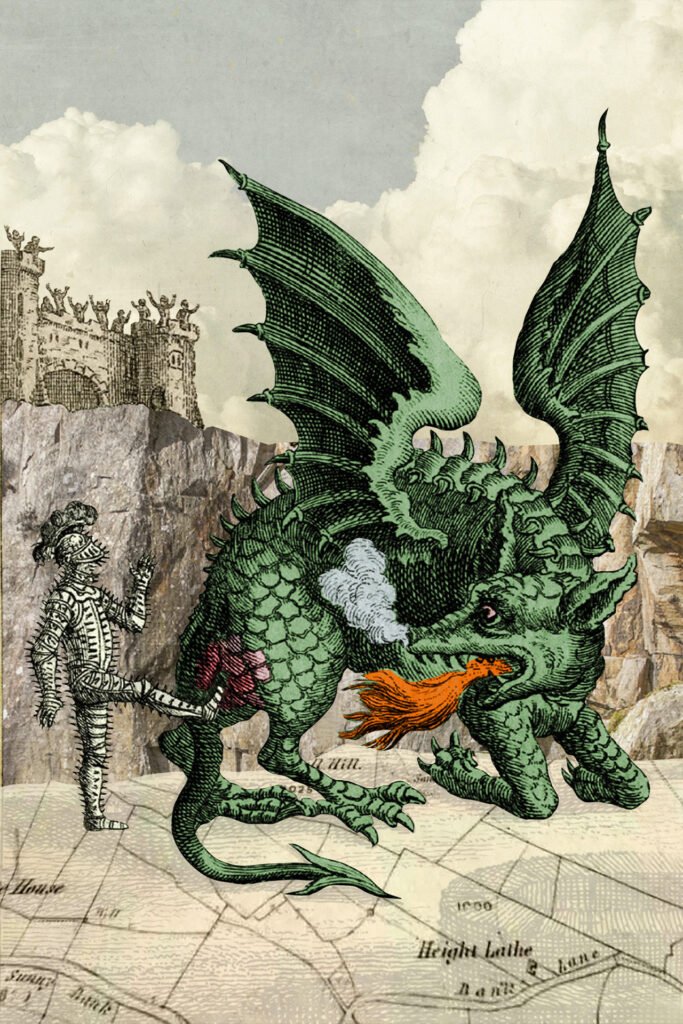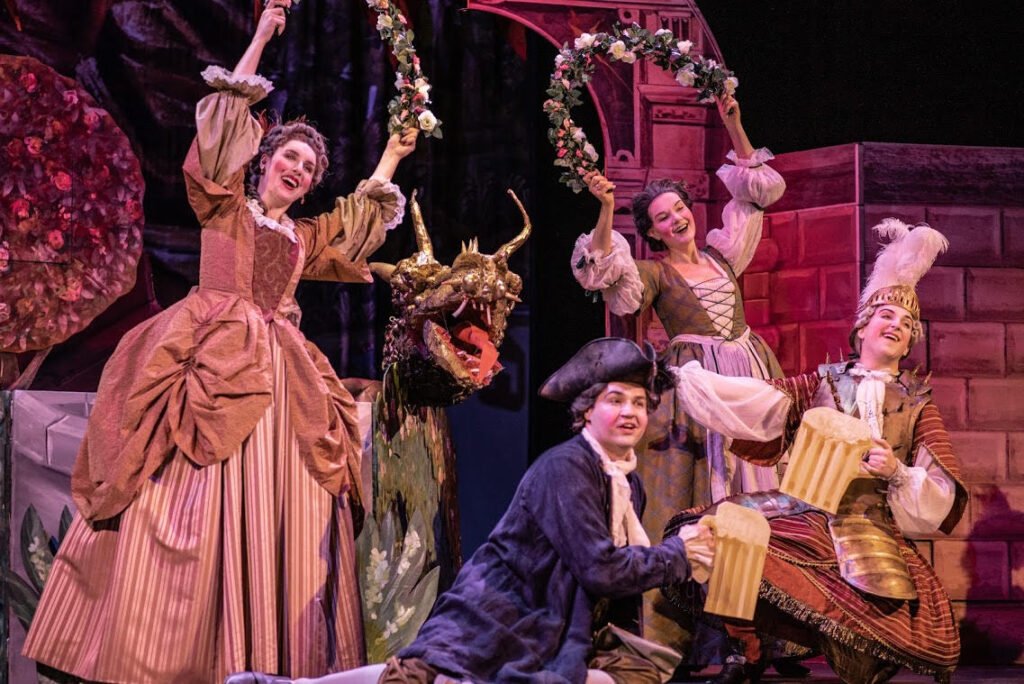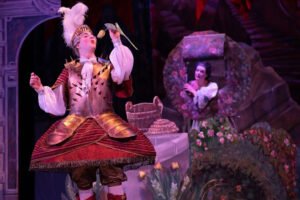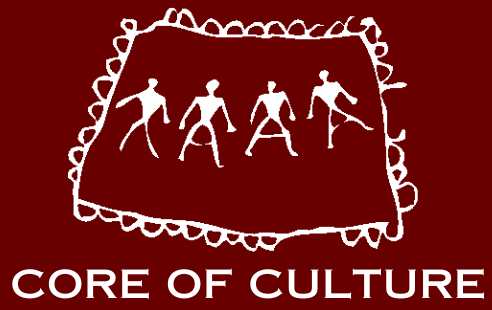A Theatrical Triumph in the Eighteenth Century, Revived

Chicago’s Haymarket Opera Company produced two performances of The Dragon of Wantley, a satirical opera premiering in London in 1737, and remaining onstage in London for the next 45 years. Its popularity outlasted the Italian operas of Handel and Italian composers that it parodied, and the politicians whose scandals it satirized. The music by John Frederick Lampe, of which Handel is quoted as saying he thought “the tunes are very well composed,” is beautiful and witty at the same time. The broad, funny and ridiculous libretto is by Henry Carey, who explained his intention “to display in English the Beauty of Nonsense, so prevailing in Italian opera.”

Nonsense it is. Sung so skillfully by the cast of four, and staged so naturally by director Sarah Edgar, who is an internationally recognized baroque dance scholar, choreographer and teacher. The Baroque dance scene internationally is well known to itself, and the network of people interested in period performance is afire thanks to social media. Edgar’s skill is like breathing, a light touch. A pleasure.
The story is about a dragon that terrorizes the country, and eats the children, as well as the childrens’ toast and butter, toast and butter, toast and bu-u-u-u-u-u-u-u-u-u-u-ter. The libretto is so silly, and the silliness is usually coupled with virtuosic singing, and impassioned gestures. “My eyes are red as a ferret, a ferret, a fe-e-e-e-e-e-e-e-ret. “ It is easy to see how this production planted the seeds for what would become Gilbert and Sullivan’s repertory of satirical light opera a century later. The high emotion of Italian opera, and its quick changes in dramatic temperament are rich soils for comedy.
Moore of Moore Hall is the only man capable of destroying the dragon, and so two women and a man appeal to him. Moore, while a hero indeed, is also profligate, likes his liquor, and enjoys his women. He’ll slay the dragon for the maiden Margery’s hand, or at least a night in bed. She agrees. The dragon is in fact a symbol of the corrupt, over-taxing government, and kicking the dragon in the arse is the only way to get it done with. Protesting a tax on alcoholic beverages, one aria by Moore lists the various alcoholic drinks in exacting detail, summing up, “drinking and pleasure are not treason.”
Michael St Peter, a Juilliard graduate and Chicago native, was delicious as Moore who was ever dancing, drinking and flirting no matter what else was going on. It was fay and robust at the same time. He sang the role with mischief and ease, always bringing harmonies into lush balance with the other singers. The women competing for Moore, Kimberly McCord as pretty Margery, and Lindsay Metzger, as Mauxalinda, a former flame of Moore that he cannot remember. The fireworks boil over in the duet “Insulting Gipsy” that is more of a duel. It is so funny as they abuse one another’s virtue with ever more grandiose singing, The singing is superb.
Keeping an ancient dance alive – such as baroque dance – takes various forms over time. There have been baroque dance companies for example. But it is nowhere better maintained than within a period opera company with a baroque choreographer who can also direct, enhancing and integrating the musicality of the production. Baroque music is built upon dance rhythms, and the prevalence of dance in society meant it was as apt to have a dance occur naturally among people, as it was to have totally designed performances. Edgar does both with aplomb.

The Haymarket Opera Company, is under the artistic direction of Craig Trompeter, who is also the conductor of the Haymarket period orchestra, which, like the staging, uses period performance practices. Happily The Studebaker theater in a grand old Louis Sullivan building, allows the musical experience to be without microphones providing a rare musical experience of a rarely performed opera.
David Govertsen was the fourth cast member, playing two roles: first the villager who appeals to Moore, and then as the Dragon, wearing a two-wheeled dragon contraption for a costume, parodying the ornate machines of baroque opera. The four were a seamless ensemble. Everyone was the star. The harmony of their singing was so sensitive that it allowed for characterization, jokes, technicalities and the simple beauty and drama of the emotions in the music.
The Guy gets the Girl. The old girlfriend gets drunk. The Dad gets a Son in Law. The Dragon gets his arse kicked. What could be more appropriate than a final chorus singing nothing but the word, “ Huzzah! Huzzah! Hu-u-u-u-u-u-u-u-u-zah!” Chicago has many world-class cultural assets, and Haymarket Opera Company is one of them. Somehow, this production should go on tour, to share this highly entertaining jewel of opera history.
